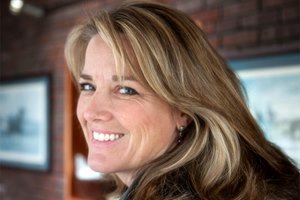Dr. Hogan Discusses "One Last Race Syndrome" at Seminar


Avoiding the “One Last Race Syndrome” and knowing when to retire Thoroughbred racehorses was the focus of an April 20 presentation by noted equine surgeon Dr. Patty Hogan. The event, held at Laurel Park, offered continuing education credit for trainers and assistant trainers and is now available on YouTube on Beyond The Wire’s new channel here.
Sorry, we were unable to embed this video. You might be able to watch it on YouTube.Video
Hogan, whose practice is located in New Jersey, said the primary reasons to retire a racehorse are a significant physical issue or a lack of competitiveness. She said retirement to a pasture is not ideal, so transitioning to second careers is important—and that requires awareness and planning.
“It behooves you to know about aftercare,” said Hogan, who noted the value of Maryland’s Beyond The Wire program. “Aftercare is a mainstream topic and part of the business plan for racing. If your horse ends up in a bad spot, it can reflect very badly on you. It gives you an out. It protects you and your clients.
“The impact of the Internet is really important. It’s a continuous news cycle and photos. The power of social media is very real.”
Hogan discussed limb fractures and bone bruising (subchondral bone disease), which can decrease the chances of a second career for racehorses. She told horsemen to make sure the proper X-rays are being taken: “Just getting proper diagnostics makes a difference.”
Hogan also said it’s important to remove bone chips to minimize arthritis and help them perform longer.
Hogan noted that societal changes over time have altered the way some members of the public view horse racing, and those industry participants must pay attention to equine welfare and public perception. Successful aftercare programs are a major part of the educational process.
“There is a huge partnership between horses and humans in racing, and we need to capitalize on that for the public,” Hogan said. “It’s important to know where horses fit into today’s world. The traditional racing fan is not the racing fan of today. Everyone can offer time, money, and skills (to the aftercare effort). If the horse wins, we all win. I think we’re on the right track.”
The event will offer continuing education credits for trainers and assistant trainers and is expected to be posted on the HorsemenU.com website upon approval.
